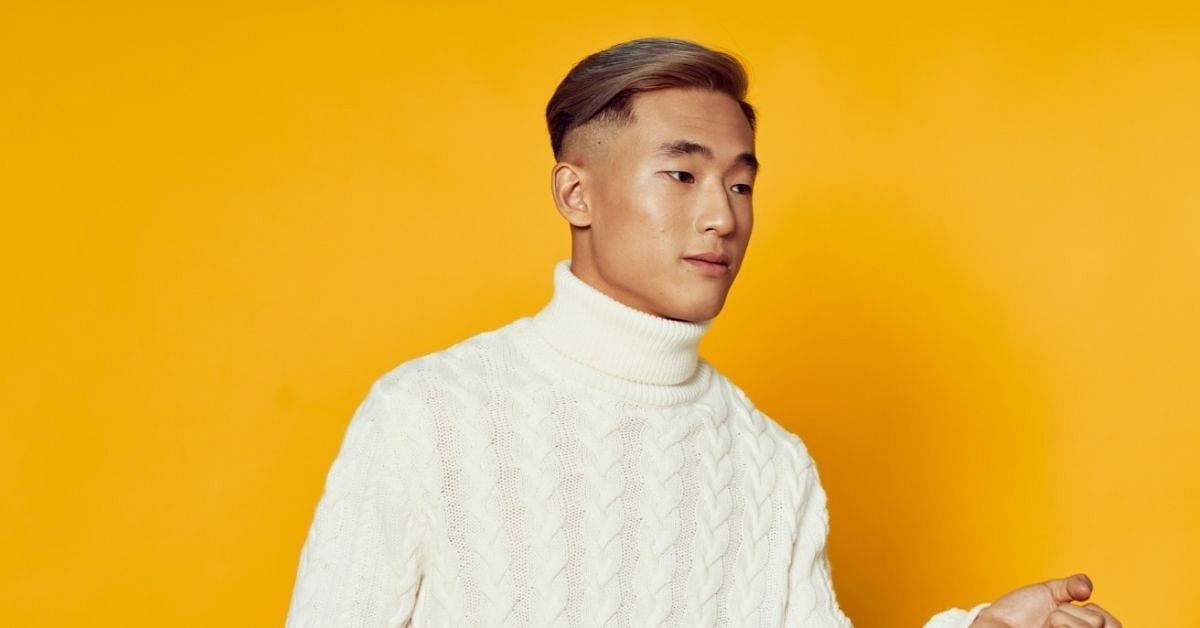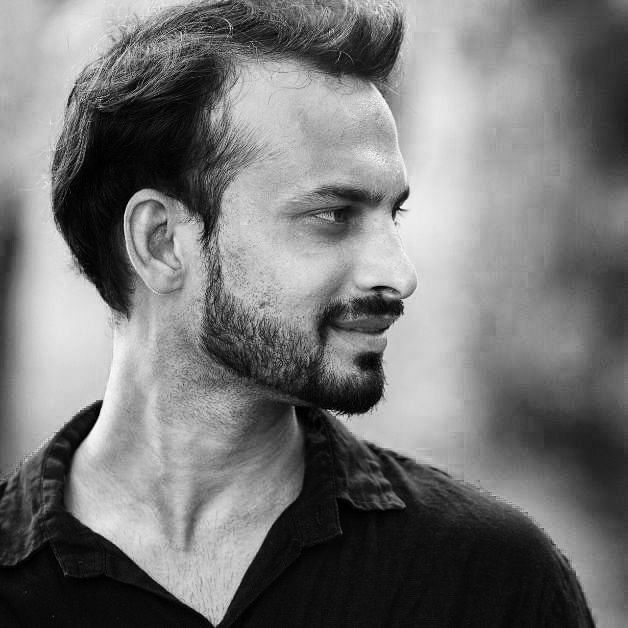So Here's Why Koreans Don't Have Beard - Myths Busted!
We all have wondered at some point whether Koreans can grow a beard or not. Don’t they grow a beard at all? Here is why Koreans don’t have a beard.

Whether you watch K-drama, K-pop or think of the famous BTS, you might have always wondered why Korean men don’t have a beard? Don’t they grow a beard at all? Or is it their preference not to maintain one? If Korean men can grow a beard, then is it part of Korean culture to not grow a beard? In this article, we will answer all your questions.

Can Koreans Even Grow Facial Hair?
Yes, Koreans can grow facial hair like other men across the globe. However, body hair and its growth vary significantly among humans. It can be due to evolutionary processes and migratory attributes.
With evolution, people started living across different parts of the world and started adapting to the place where they lived. For example, those who moved to colder regions developed more body hair to deal with the cold climate. Those who lived in the hotter or moderate climate areas grew less body hair, like Koreans and East Asians.

What Does Genetics Tell About Koreans for Beard Growth?
Asian men grow lighter beards compared to European and American men. As per a study, East Asian people, including Koreans, grow sparser facial hair because of a variant of the EDAR gene. Common variations of this gene are associated with hair thickness and straightness in East Asians.
Genetics suggests that not every Korean man can grow a full beard like any other American or European man. Some can’t grow a beard, while others have full-grown beards. It depends mainly on genes, health, lifestyle, and hormones. Beard growth is also affected by ethnicity and heredity.
Testosterone hormone (the male sex hormone) is responsible for facial and beard hair growth. For men aged 19 to 38 years, testosterone levels should be between 264-916 nanograms per deciliter (ng/dL).
As per a study, the level of dihydrotestosterone (DHT) production decides the beard growth rate. DHT is a byproduct of testosterone that is activated in hair follicles by body chemicals. Therefore, low levels of testosterone negatively affect the growth of the beard.

Consequently, it can be a reason for the absence of beard or facial growth in some Korean men. Also, Korean men have low sensitivity of hair follicles to testosterone, so they have slow beard growth. It is also a fact that Korean men are genetically predetermined to grow fewer beards, so they mostly have a scant beard, even if their testosterone levels are normal.
Moreover, as per studies, different ethnic groups exhibit different facial hair growth patterns. For instance, men from Mediterranean countries grow thicker beards than other regions. Also, Chinese, Japanese, and Korean men have less facial hair growth than Caucasian men.
Also, as per a study, the diameter of hair varies from 17 to 180 mm among men all across the globe. Thick hair makes the beard dense-looking.

Why Koreans Don't Have Beard?
Now you know that Korean men can grow a beard, so why don’t Koreans have a beard? Only a proportion of the Korean population, less than 30% of Korean men, keep beards. Here are some possible reasons behind it:
1. Historical Reasons
The aversion of Korean men to beards has its roots in Korean history. According to the pictures of ancient Korean emperors, the Koreans grew beards. However, it has changed through the centuries.
During the Joseon Era, around the 14th century, it was considered offensive to harm the body and its parts, including hair. So, Korean men had beards in the deep Joseon era.
As soon as colonisation began, Koreans started adapting to the westernised culture and looks. Because of the administrative and sanitary changes, people adopted the military-style and soon, clean shaving became the new standard.
Today, having a clean shave is associated with being hygienic, successful, intelligent, and young in Korea. However, the elderly population used to keep beards, and even today, older people prefer moustaches and beards.
2. Genetics and Ageing
Genes play a significant role in determining the beard growth pattern. Korean men have hair follicles with low sensitivity towards testosterone. It leads to slow growth of the body and facial hair.
Beard growth is also proportional to aging. Korean men tend to age slower than European men. So, their beards take more time to reach full growth as compared to their European counterparts.

3. Cultural Reasons
Young Koreans consider beards untidy, dirty, eccentric, and unclean, whereas a clean shave signifies sharpness, class, and sophistication. At the same time, a beard and moustache among older men are considered a symbol of wisdom. Therefore, it is disrespectful for young men to have a beard in front of a beardless older man in Korean culture.
Moreover, it makes the beard an element of rebellion. Some other reasons are:
- Judgement: Men with a beard in Korea are perceived as either going through some emotional trauma. Or others think they have ‘lost their way’ and are on drugs or alcohol.
- Women’s Preference: Beard is considered a sign of masculinity. But in Korea, women consider men with beards as unhygienic and someone who is not capable of taking care of themselves. They think of it as a negative personality trait.
- Job Culture: Many workplaces and jobs make it compulsory for men to shave every day to look more sophisticated. Even a little stubble is considered messy and is not allowed.
4. Beauty Standards
Korea is known for its high beauty standards and skincare products. Appearance is of utmost importance to Korean people. They want smooth, poreless, blemish-free, and even-toned skin. It’s unnatural but applies to men and women alike.
As per a survey report conducted among South Korean men, around 56% of them shave or take care of their beards once a day. Many Koreans go through skin procedures like lasers to stop or slow down facial hair growth.
Also, most Koreans consider body hair barbaric and go through laser treatments to remove body hair and meet the Korean beauty standard.
5. Role of Media
Korean media played a crucial role in strengthening the idea of beardless men as a standard of beauty. As a result, a clean shave is popularised in Korea by the male media fashions, k-pop, and k-dramas.
Media show clean-shaven men as ideal boyfriends with stability and success. Conversely, those who hit rock bottom are shown with rough beards.
Also, they popularise this notion among youth that when a man gets up and decides to be on track again, the first thing they do is clean up, shave, and suit up. These messages strongly impact people’s minds and make beardless men beauty icons.

6. Current Scenario in Korea
Korean culture is continuously evolving and changing. Maybe in the future, Koreans will go back to their Joseon roots and accept the bearded look.
Also, nowadays, some K-dramas are promoting actors with a beard. Unfortunately, though, locals call them dirty-sexy. So the popular belief of having a beard is not changed, and a beard is still labelled as dirty.
But, some people prefer a beard. To make their bread denser, beard products like BeardMax 5% Minoxidil Beard Growth Serum are a helpful science-based solution to make their bread denser. Minoxidil 5% solution promotes thicker beard and moustache growth within 100 days without any side effects.
Men who wish to grow a beard should use a beard growth kit. It has Tostero capsules with a blend of ancient herbs like Shilajit, Muesli, Ashwagandha, and Goksura. It also has a bottle of Minoxidil solution. The duo contains ingredients that boost testosterone levels and stimulate beard follicles to get fuller growth, also filling in patches in your beard with regular use.

Conclusion
Now we know why don’t Koreans have a beard. It is because they shave and keep it clean; Koreans prefer to be hairless. Although low testosterone levels lead to sparse beard, history of Korean civilisation or high beauty standards, the idea of a beardless man has slowly been imbibed in Korean culture.
In western culture, having facial hair and beard is considered a sign of masculinity. However, in Korea, it is deemed unclean, untidy, and lazy not to care for the appearance. The notion of beauty is different worldwide, but as per the famous saying, beauty lies in the eyes of the beholder.
References
- Statista, Frequency of shaving or beard grooming among male consumers in South Korea in 2021 - https://www.statista.com/statistics/1113453/south-korea-shaving-or-beard-grooming-frequency-men/
- C R Edwards, A M Dawson, 1982 November; Relationship between plasma testosterone and dihydrotestosterone concentrations and male facial hair growth -https://pubmed.ncbi.nlm.nih.gov/7126460/
- R. Burghardt, F. Siebenhaar, May 2016; The male beard hair and facial skin – challenges for shaving - https://onlinelibrary.wiley.com/doi/full/10.1111/ics.12328

